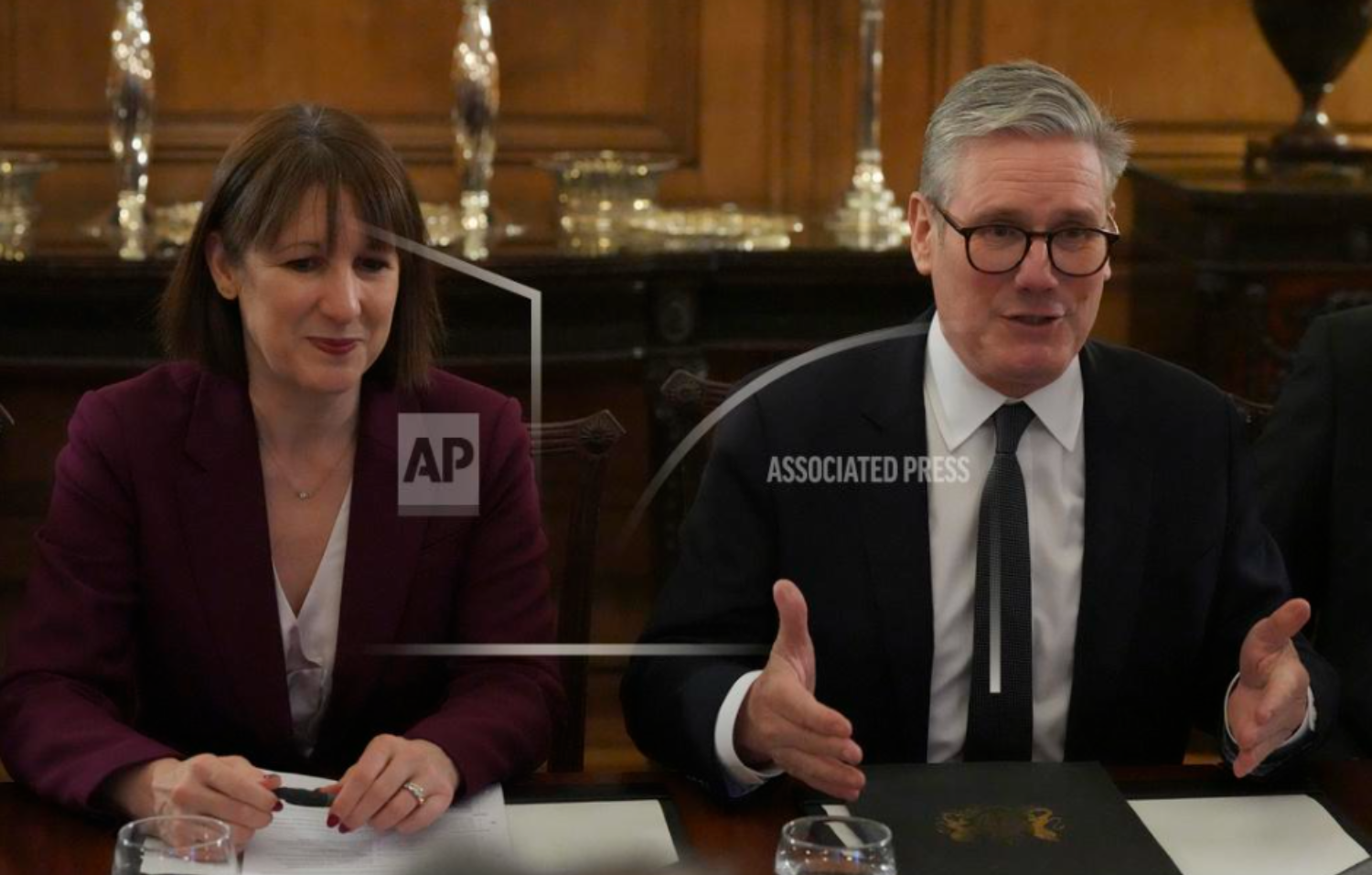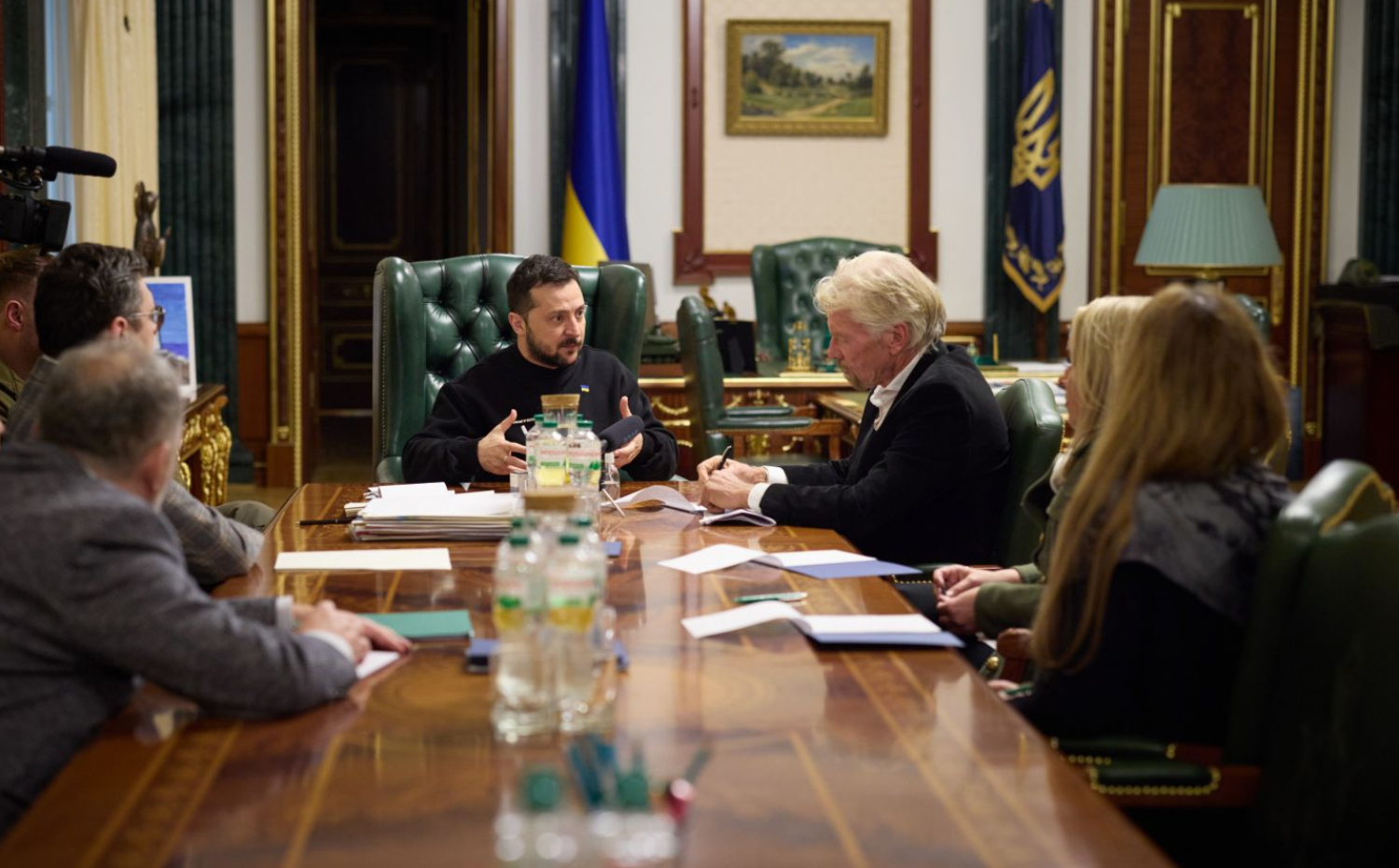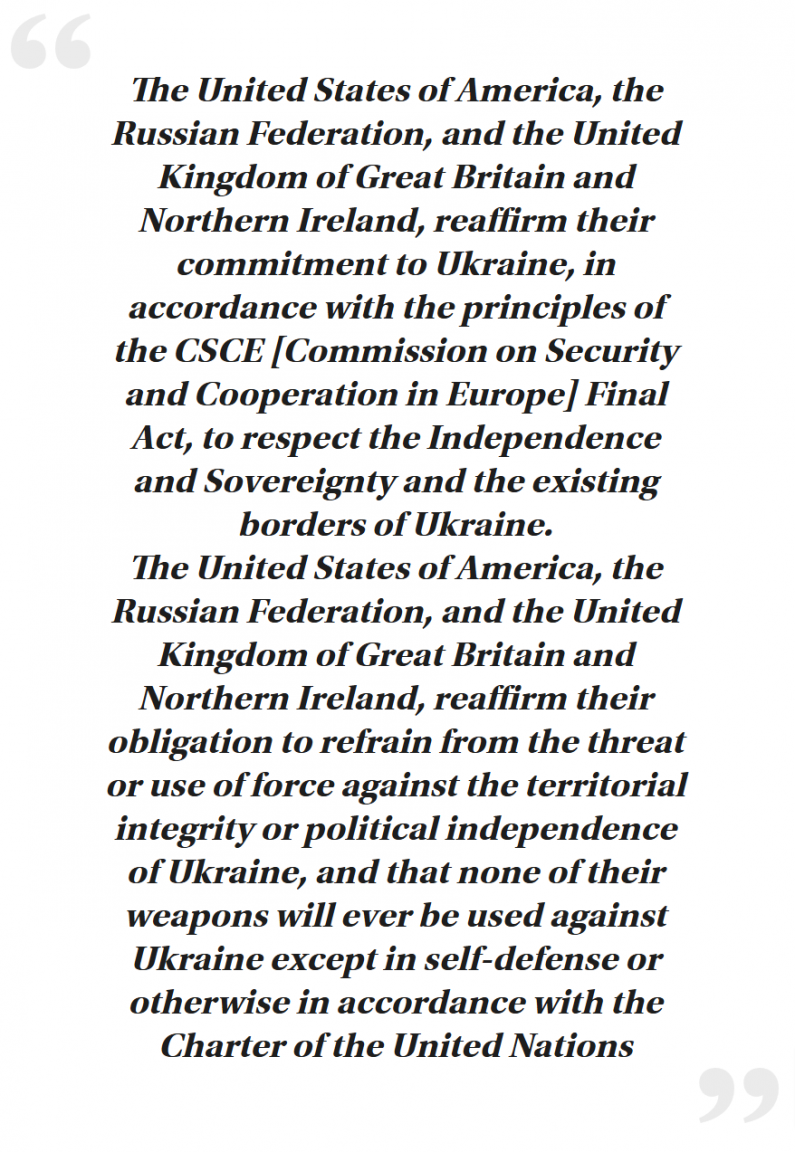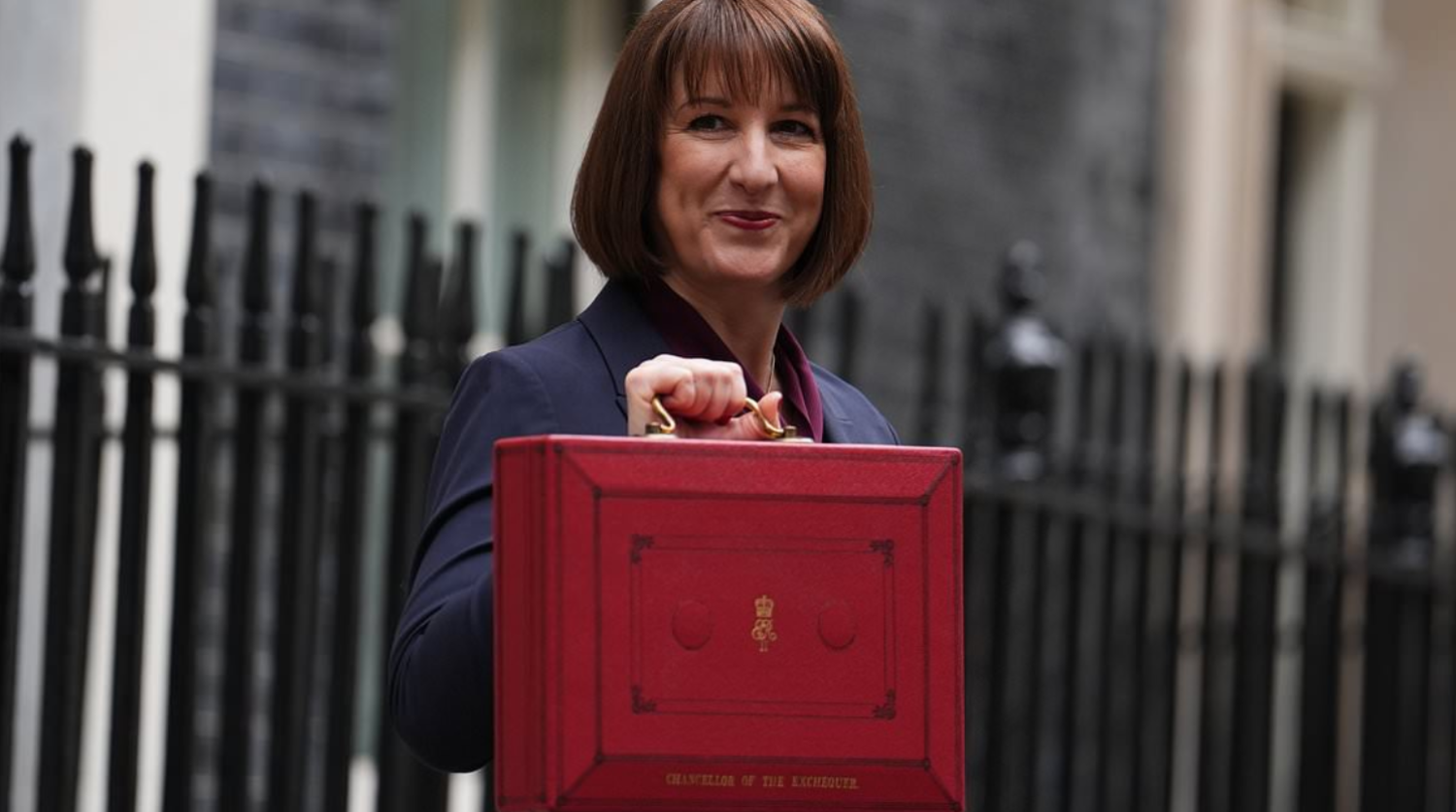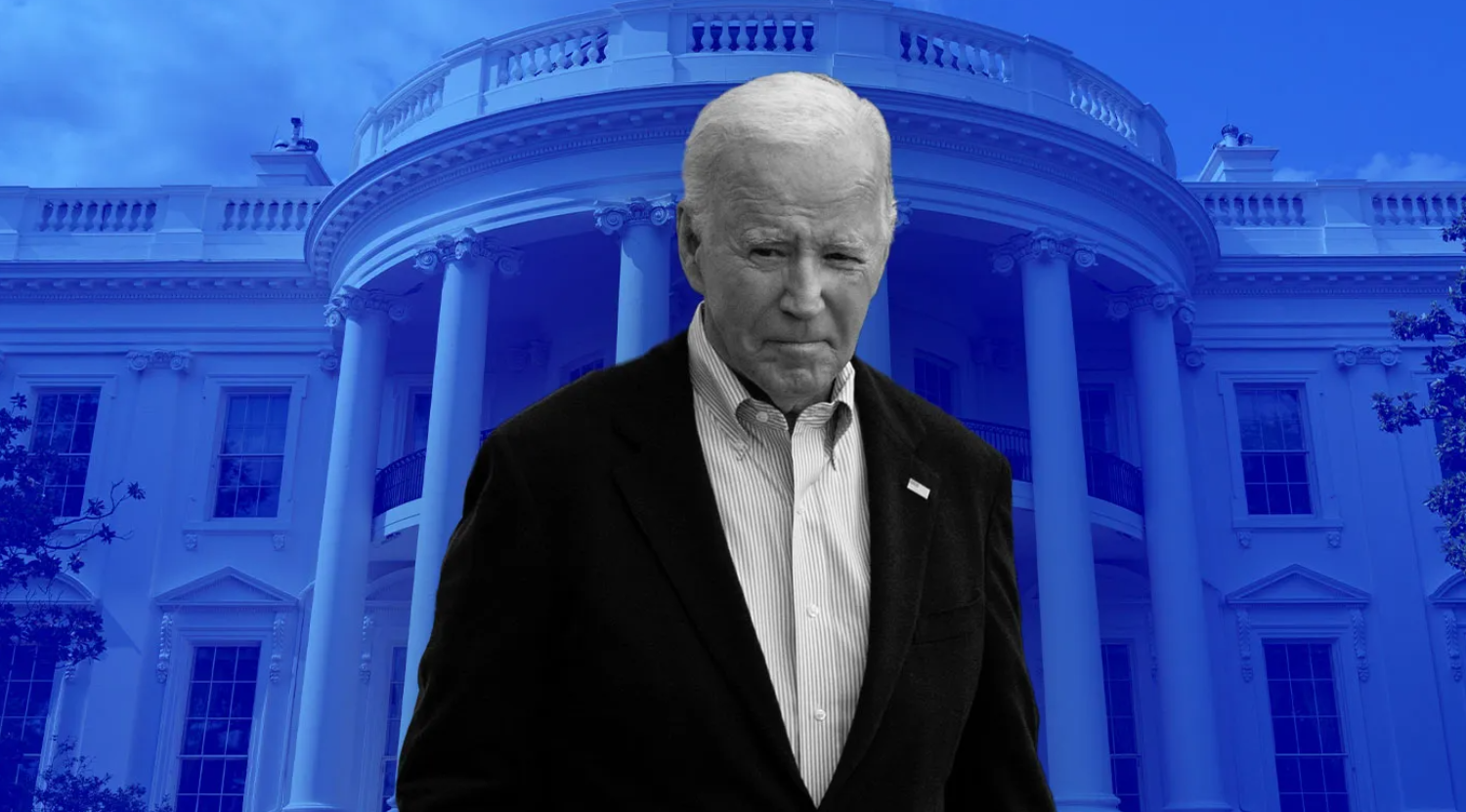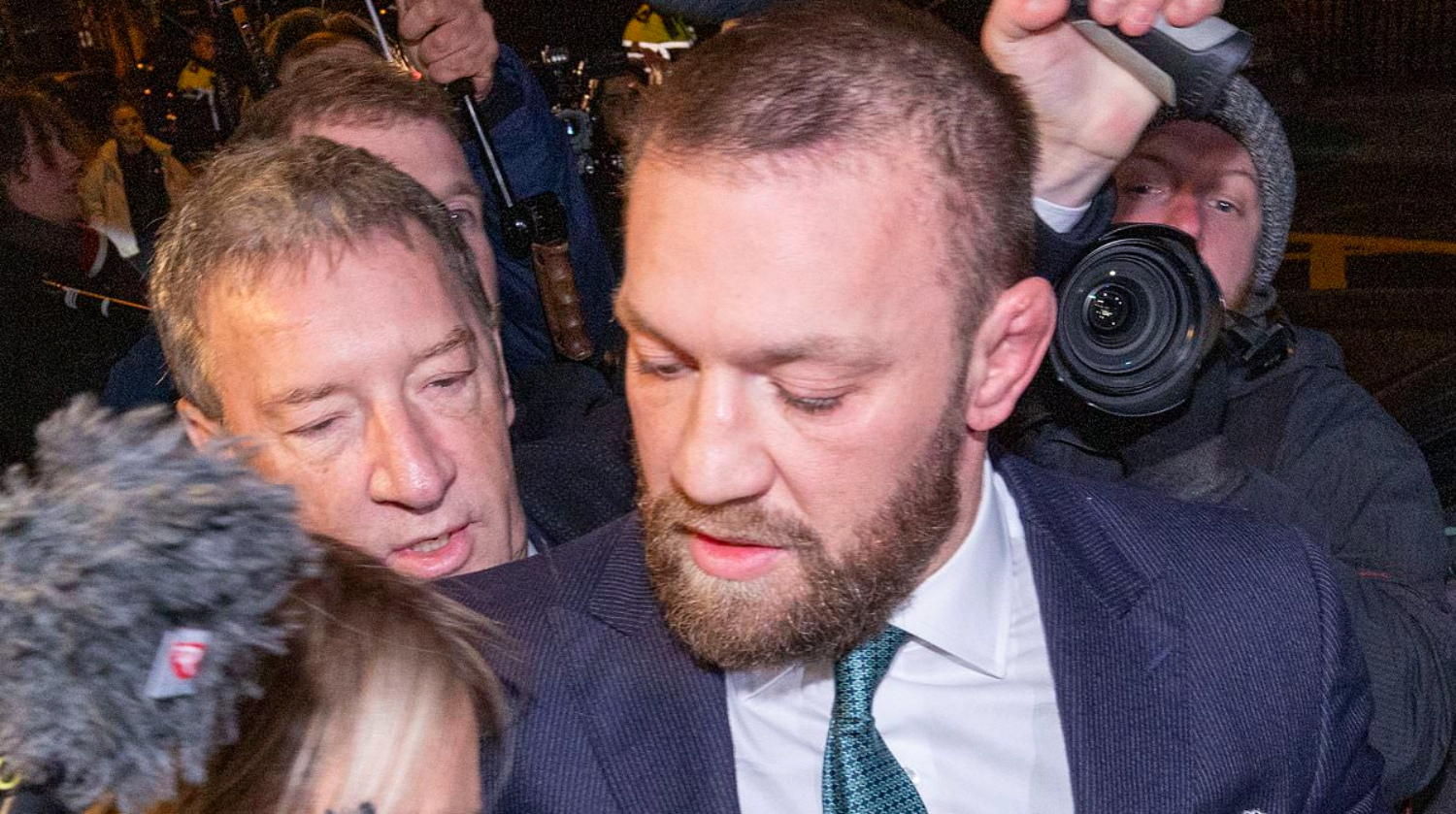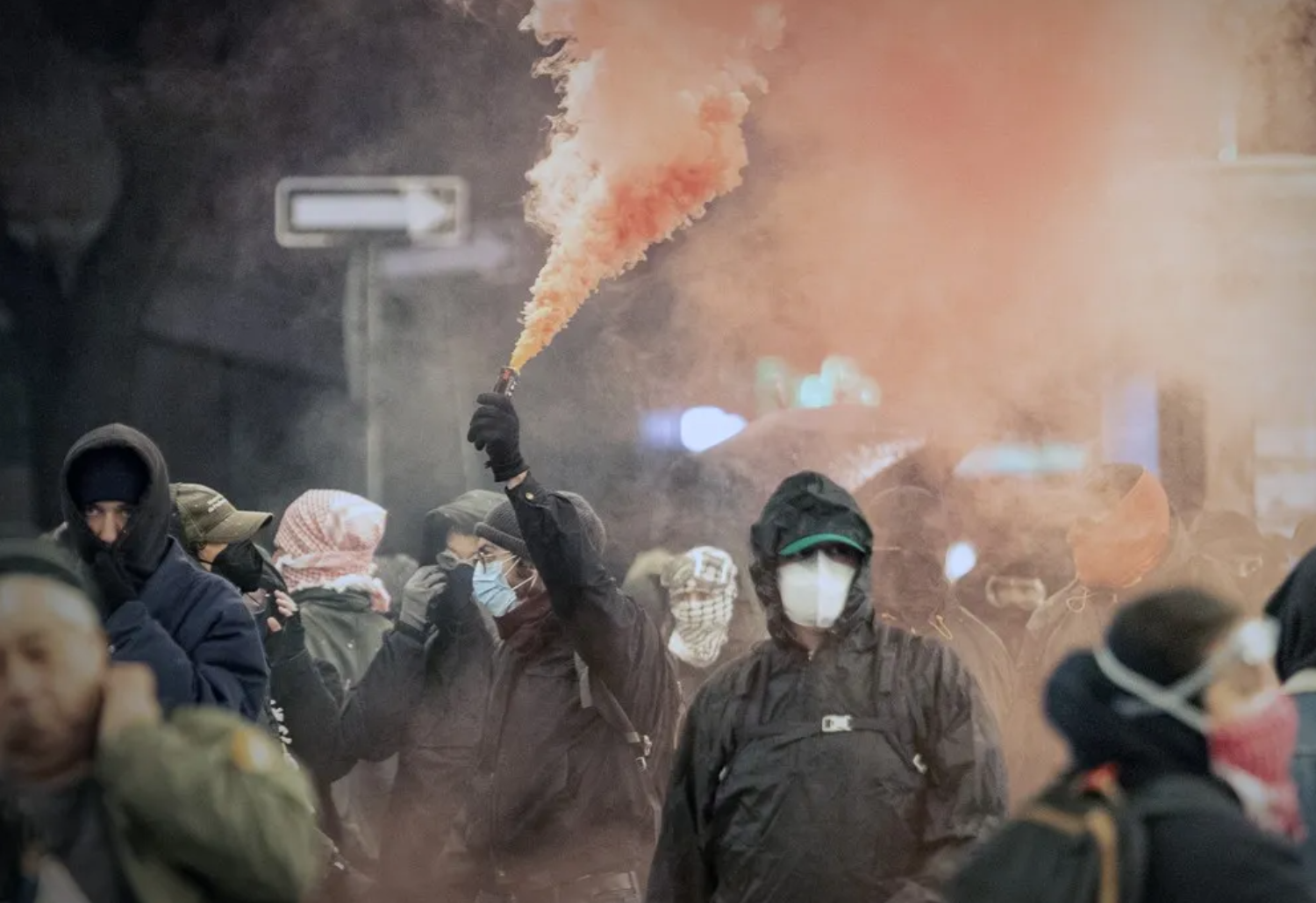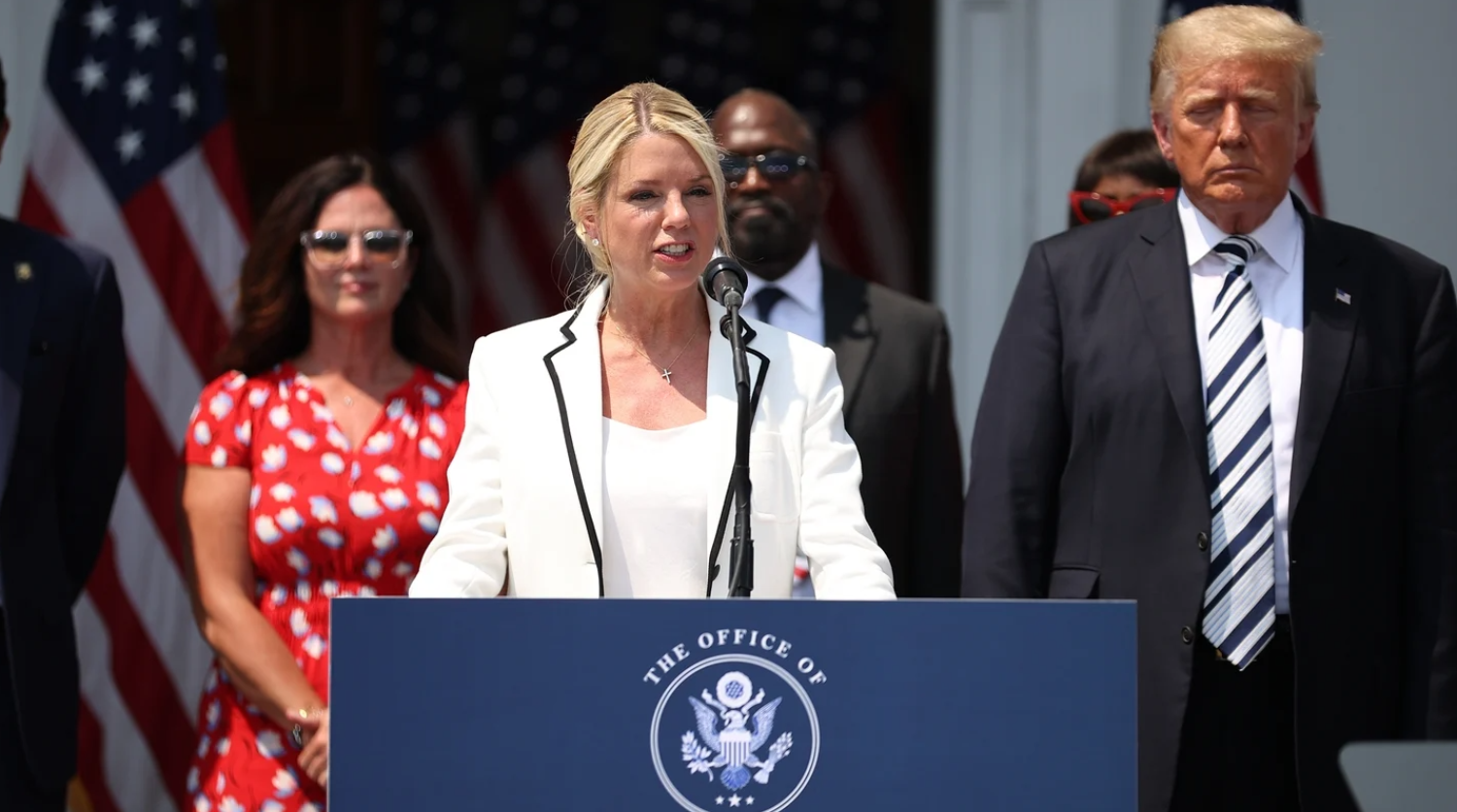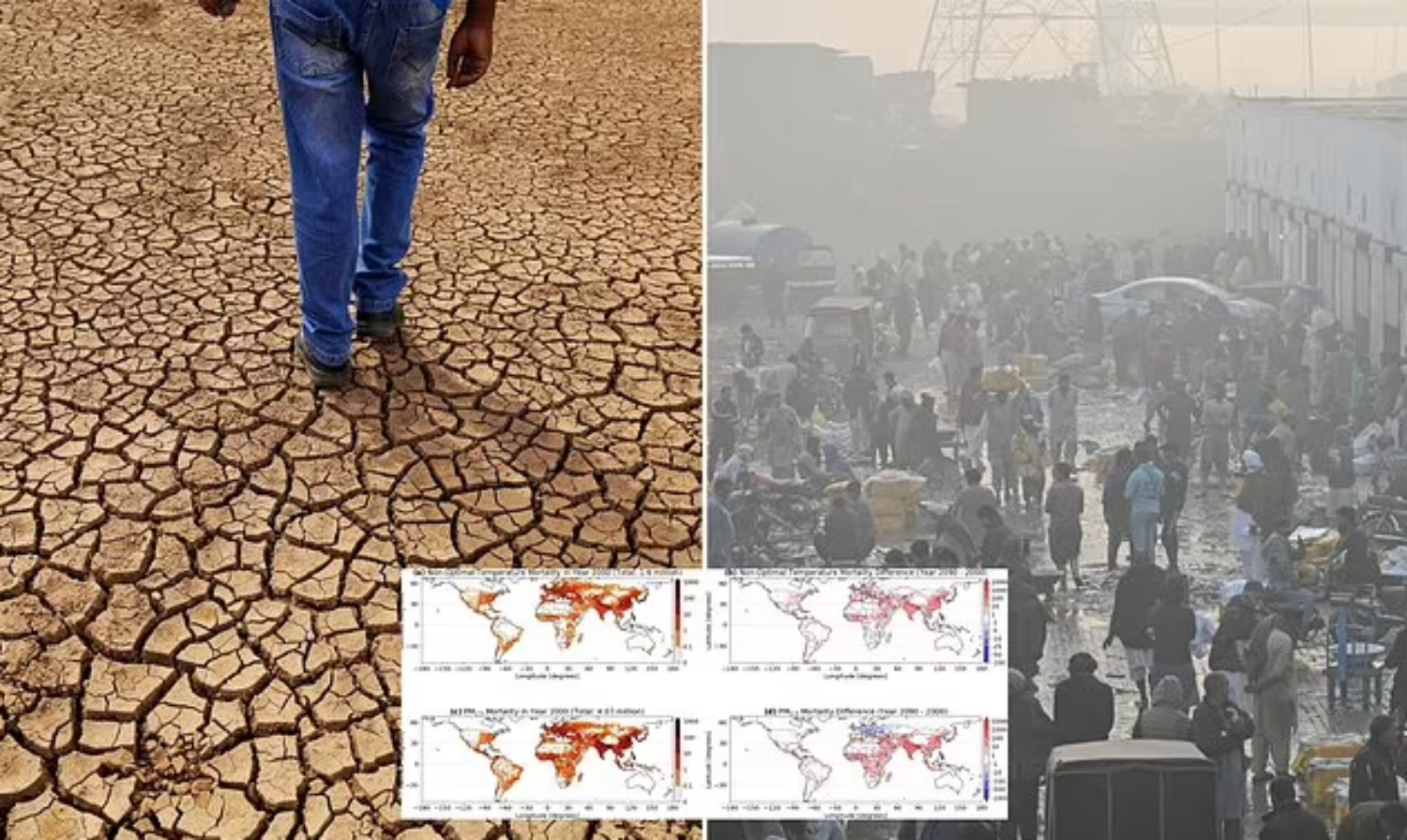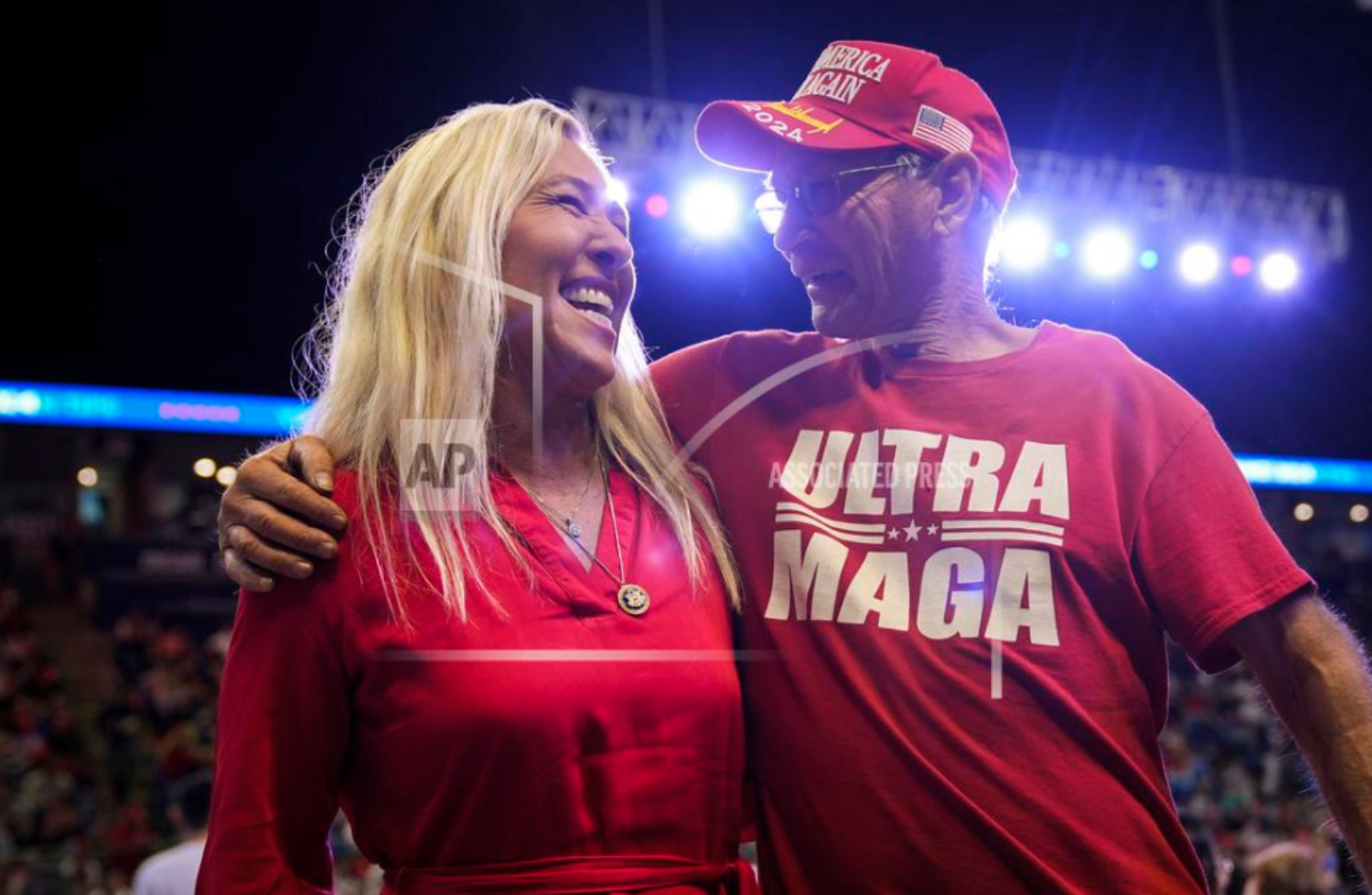-
Posts
10,702 -
Joined
-
Last visited
Content Type
Events
Forums
Downloads
Quizzes
Gallery
Blogs
Everything posted by Social Media
-
A petition demanding a new general election has gained significant traction, amassing over 200,000 signatures as of publication. This number far exceeds the threshold required for the government to issue a formal response and triggers consideration for a parliamentary debate. The petition, created by Michael Westwood, has been widely circulated on social media since its launch on Wednesday. Westwood’s petition states, "I would like there to be another General Election. I believe the current Labour Government have gone back on the promises they laid out in the lead up to the last election." His call resonates with widespread discontent over perceived policy reversals by the Labour Party, which secured its mandate in the last election. According to the UK Government's petition platform, any initiative that garners 10,000 signatures prompts a response from the government. Reaching 100,000 signatures typically ensures that the matter is debated in Parliament. However, the government website notes that petitions may not be debated if the issue has already been recently addressed or is slated for discussion soon. The site clarifies, "MPs might consider your petition for a debate before it reaches 100,000 signatures." This surge in public dissatisfaction coincides with a tumultuous period for the government. Farmers have staged protests against inheritance tax reforms unveiled in the latest Budget, adding to the mounting pressures faced by Labour leadership. Compounding the party’s challenges, Prime Minister Keir Starmer's approval ratings have plummeted dramatically. Starmer, who initially entered office with positive public sentiment, now faces a stark reversal of fortunes. Think tank More in Common reports that his approval ratings have fallen to negative 38, reflecting the net difference between those who view his performance positively versus negatively. This marks a sharp decline from his early days in Downing Street when his rating peaked at a modest plus five and later rose to eleven in August. The Prime Minister’s tenure has been marked by what he describes as "tough choices," including controversial public spending cuts. These measures have included scaling back the Winter Fuel Allowance for millions of pensioners and ending the £2 bus fare cap. While these decisions aim to address economic challenges, critics argue they have alienated voters and dampened the optimism that initially buoyed Starmer’s leadership. As public dissatisfaction grows, the Labour government faces an uphill battle to rebuild trust. The petition's rapid rise in support underscores the growing sentiment that the party has strayed from its campaign promises. Whether this public demand will lead to a new general election remains to be seen, but it undeniably signals a turbulent road ahead for the current administration. Based on a report by Daily Mail 2024-11-25
-
In 1994, a groundbreaking agreement was forged with Ukraine, a nation then holding the third-largest stockpile of nuclear weapons after the Soviet Union's dissolution. The Budapest Memorandum, signed by Russia, the United States, and the United Kingdom, guaranteed Ukraine's sovereignty, independence, and territorial integrity in exchange for relinquishing its nuclear arsenal. The promise was clear: "Give up your nuclear weapons, and in return, we will respect your borders and independence." It seemed a prudent path toward global disarmament, reducing the likelihood of nuclear conflict. The agreement’s key provisions affirmed the signatories’ commitment to respect Ukraine’s borders and sovereignty, as well as to refrain from threatening or using force against the country. Yet, these assurances were first shattered in 2014 when Russia invaded and illegally annexed Crimea. The façade of cooperation completely crumbled on February 24, 2022, when Russia launched its full-scale invasion of Ukraine. More than 1,000 days later, the war rages on, exposing not only Russia’s betrayal of the Memorandum but also the fragility of such international agreements. Ukraine’s decision to give up its nuclear weapons—a stockpile large enough to have made it a formidable nuclear power—was based on trust in the Memorandum’s guarantees. Without nuclear deterrence, Ukraine has faced Russia’s aggression, its sovereignty blatantly violated. Vladimir Putin’s actions reveal the hollowness of Russia’s promises, casting doubt on the credibility of multilateral agreements aimed at ensuring global security. Russia’s disregard for its commitment has implications far beyond Ukraine’s borders. The Budapest Memorandum is now a cautionary tale for any nation contemplating disarmament. If a country like Ukraine, once armed with a nuclear arsenal, can be invaded despite international guarantees, why would any other nation agree to surrender its nuclear capabilities? Worse still, this betrayal could encourage non-nuclear states to pursue weapons of mass destruction, further undermining global disarmament efforts. The Budapest Memorandum's failure has also eroded trust in multilateral institutions and their ability to uphold international law. Negotiating complex agreements is already a daunting task; seeing them ignored when geopolitics turn volatile is a devastating blow to the principles of diplomacy and cooperation. If such agreements cannot withstand the strains of conflict, what hope is there for resolving disputes or preventing future wars through peaceful means? Few people today are aware of the Budapest Memorandum and the commitments it enshrined. Yet its relevance is critical as the world grapples with questions of security, sovereignty, and the efficacy of international law. If treaties like this are disregarded, what other mechanisms exist to prevent a descent into global anarchy? For those who believe in the power of collective action to address shared challenges, the situation is deeply troubling. The rule of law is under attack, and defending it demands more than words. The international community must confront the implications of Russia’s actions and recommit to upholding agreements like the Budapest Memorandum. Otherwise, the trust necessary for global cooperation—and the vision of a world free from nuclear threats—may be lost forever. Based on a report by Virgin 2024-11-25
-
President-elect Donald Trump announced his decision to appoint Marty Makary, a prominent Johns Hopkins surgeon and author, as the new head of the U.S. Food and Drug Administration (FDA). Makary, known for his critical stance on pandemic lockdowns, will be tasked with overseeing the agency's $7 billion budget and its regulation of the $3.6 trillion market of food, tobacco, and medical products, including approximately 20,000 prescription drugs. Trump stated that Makary would work closely with Robert F. Kennedy Jr., his pick for health secretary, to address critical public health issues, including harmful chemicals in food and drugs. "He will work under the leadership of Robert F. Kennedy Jr. to, among other things, properly evaluate harmful chemicals poisoning our Nation’s food supply and drugs and biologics being given to our Nation’s youth, so that we can finally address the Childhood Chronic Disease Epidemic," Trump declared in his announcement. Makary rose to prominence during the COVID-19 pandemic as a vocal critic of lockdowns and other public health measures, frequently challenging mainstream recommendations. While he is a respected transplant surgeon, his pandemic commentary drew both support and criticism. He often appeared on Fox News and penned opinion articles questioning the effectiveness of measures such as masking children and mandating vaccines. Although he supported vaccinations, he opposed mandates and doubted the widespread need for booster doses, diverging from the recommendations of the Centers for Disease Control and Prevention (CDC). Makary’s views on natural immunity also became a subject of significant debate. In early 2021, he predicted that much of the U.S. would achieve herd immunity by April, a forecast that proved overly optimistic. Instead, virus-related deaths surged later that year with the emergence of new variants, making 2021 deadlier than the pandemic's first year. Despite this, Makary defended his stance, arguing that natural immunity was underestimated by health officials. "One reason public health officials may be afraid to acknowledge the effectiveness of natural immunity is that they fear it will lead some to choose getting the infection over vaccination. That's a legitimate concern. But we can encourage all Americans to get vaccinated while still being honest about the data," Makary wrote in *The Washington Post*. In the aftermath of the pandemic, Makary shifted his focus back to his longstanding critique of the U.S. health care system, which he has described as broken, overpriced, and riddled with unnecessary tests. He also began emphasizing concerns about America's food industry, aligning his views with those of Robert F. Kennedy Jr. "We've got a poisoned food supply. We've got pesticides. We've got ultra-processed foods and all sorts of things that have been in the blind spots in modern medicine," Makary said during a September interview with Fox News. Makary praised Trump's decision to select Kennedy for the role of health secretary, noting their shared commitment to addressing corruption within health agencies. "He wants to address corruption in health care and corruption in our government health agencies," Makary stated. He has also criticized FDA leadership in the past, describing the agency as operating like a "crusty librarian" who favors certain stakeholders over others. If confirmed by the Senate, Makary’s tenure at the FDA is likely to draw both scrutiny and support as he confronts the agency's role in regulating critical aspects of public health, alongside Kennedy, who also requires Senate confirmation. Based on a report by ABC News 2024-11-25
-
Former UK Prime Minister Boris Johnson has launched a scathing attack on Labour leader Sir Keir Starmer, accusing him of "effectively standing with Hamas" following the International Criminal Court's (ICC) issuance of an arrest warrant for Israeli Prime Minister Benjamin Netanyahu. Writing in his Daily Mail column, Johnson alleged that Starmer and Labour have implicitly supported the ICC's actions, which also target former Israeli Defence Minister Yoav Gallant for alleged war crimes related to the Gaza conflict. Johnson criticized what he called Labour’s “acceptance of moral equivalence between Hamas and Israel," accusing the opposition party of equating “terrorists and their victims.” His comments reflect growing tensions surrounding the UK government’s stance on the ICC's decisions. While Downing Street affirmed its respect for the ICC's independence, it declined to rule out enforcing the arrest warrant if Netanyahu were to visit the UK. The UK, as one of the 123 member states of the ICC, is obliged to uphold the court's rulings. The ICC also issued a warrant for Hamas commander Mohammed Deif, whom Israel claimed was killed in an airstrike earlier this year. Johnson’s criticism extended beyond Starmer to the ICC itself. "Instead of standing with Israel, Starmer is effectively standing with Hamas—because he has cravenly endorsed the request, from the International Criminal Court, that the leaders of Israel should be charged with war crimes," Johnson wrote. He questioned the sincerity of Starmer’s past support for Israel, describing his previous expressions of solidarity following the October 7 Hamas terror attacks as “guff, hypocrisy, and blather.” He further argued that the ICC’s actions were misplaced, stating, “We are treating them like Slobodan Milosevic and Ratko Mladic, the butchers of the Balkans, when this ICC case is patently absurd. The Hague court is designed for tyrants—like Putin or Milosevic—who have no chance of facing justice in their own country. The ICC is supposed to ‘complement’ any potential failure of due process.” Dame Priti Patel, the shadow foreign secretary, also expressed alarm, labeling the ICC decision as “deeply concerning and provocative.” She warned that it could hinder efforts to release hostages and deliver critical aid to Gaza. International backlash against the ICC’s move has been swift, with the United States and allies condemning the decision. A White House spokesperson dismissed the arrest warrants, emphasizing the lack of US jurisdiction under the ICC and citing procedural flaws in the prosecutor’s actions. President Joe Biden’s administration expressed "deep concern" about the implications of the court’s rulings. Donald Trump’s allies also criticized the ICC, with his pick for National Security Advisor, Mike Waltz, declaring on X: “The ICC has no credibility, and these allegations have been refuted by the US government.” Based on a report by Daily Telegraph 2024-11-25
-
The proposed rise in National Insurance (NI) contributions has sparked concerns over its significant impact on England’s adult social care sector, with experts warning that the additional costs could outweigh promised budget increases. Analysis from the Nuffield Trust indicates that these changes will cost care providers over £900 million next year—far surpassing the £600 million allocated to local authorities for social care in the recent Budget. This financial strain is compounded by broader cost increases, including planned rises in the national minimum wage, which collectively could burden the care sector with an additional £2.8 billion in expenses. Industry leaders and analysts are cautioning that such pressures could lead to widespread closures, fee hikes, and disruptions to essential services for vulnerable individuals. Natasha Curry, deputy director of policy at the Nuffield Trust, emphasized the precarious state of the sector. “Already fragile after a decade of cuts, runaway inflation, and the effects of Covid-19, adult social care was in desperate need of relief,” Curry said. She described the Budget as one that “gave with one hand and took away with the other,” warning that without urgent government intervention to cover employer National Insurance contributions (ENICs), the sector faces potentially “catastrophic” consequences. The planned increase of 1.2 percentage points in ENICs, coupled with a reduction in the earnings threshold for employer contributions from £9,100 to £5,000 by 2025/26, is expected to significantly elevate operating costs for care homes. The report highlights that many of the 18,000 providers delivering adult social care in England may be forced to raise fees, refuse council-funded clients, or shut down altogether. This would disproportionately affect smaller businesses, which are more vulnerable to financial pressures. Industry figures are also sounding alarms over the potential impact on state-funded individuals. Nadra Ahmed, chairman of the National Care Association, criticized the Labour government’s handling of the issue, accusing it of reneging on pre-election promises to prioritize the social care sector. “Some providers are facing £250,000 of extra annual costs because of the tax change,” Ahmed stated, warning that the NI hike could drive some care homes into bankruptcy. To address these challenges, the Government has pointed to potential council tax increases, which are projected to generate just over £2 billion for all council services, and new funding measures such as a £600 million grant for social care and an additional £86 million for the Disabled Facilities Grant. A Department of Health and Social Care spokesperson described the situation as an inherited crisis, stating, “We are determined to tackle the significant challenges and build a national care service so everybody can access the high-quality care they deserve.” However, critics argue these measures fall short. The Nuffield Trust report suggests that local authorities would need to allocate their entire council tax increases and the £600 million grant to social care just to offset the mounting costs. The Liberal Democrats have called for the social care sector to be exempt from the NI rise, advocating for immediate relief to prevent further destabilization. As the sector grapples with these financial pressures, many fear that rising costs will lead to a critical loss of capacity in an already overstretched system. Without swift government intervention, the reforms and relief measures intended to stabilize adult social care may arrive too late for many providers and the vulnerable populations they serve. Based on a report by Daily Telegraph 2024-11-25
-
The rise of the Houthi movement in Yemen has transformed what was once a localized militia into a formidable regional threat with global implications. Since 2015, the United States and its allies have struggled to prevent Iran from significantly enhancing the Houthis’ military capabilities. Despite efforts to counteract this threat, the Houthis have emerged as a sophisticated force closely aligned with US adversaries, reflecting a failure in strategic containment. The United States has often sought to “avoid escalation” in response to Houthi provocations. Since October 2023, this approach has been marked by reactive measures that have neither deterred the Houthis nor degraded their military infrastructure. Consequently, the Houthis have gained invaluable insights into US defensive operations, potentially enhancing the efficacy of their attacks and sharing this intelligence with other adversaries. These developments risk undermining US strategic priorities, particularly in the Indo-Pacific, which has already been overshadowed by Middle Eastern operations over the past year. Iran’s support for the Houthis has been crucial in their evolution as a threat. By smuggling drones and missiles into Yemen—often in pieces and transported via sea and land—Iran has enabled the Houthis to amass an arsenal capable of targeting global shipping and US allies. Efforts by the United States and its partners to intercept these supplies since 2015 have achieved limited success due to vast distances and constrained resources. Smuggling has persisted during Yemen's ongoing conflict, with large dhows, fishing vessels, and uninspected cargo ships bringing in hundreds of truckloads of supplies. Combined with technical assistance from Iran and Hezbollah, these efforts have allowed the Houthis to build advanced missile systems and other weapons of strategic importance. The Houthis escalated their regional aggression in October 2023, launching drones and missiles toward Israel and formally aligning with Hamas in the ongoing conflict. These actions marked a significant escalation, yet the US response was predominantly defensive, avoiding direct measures to disrupt Houthi capabilities. As a result, the Houthis continued to intensify their attacks on international shipping and US warships, showing no signs of deterrence. By January 2024, after dozens of Houthi assaults, the US initiated strikes into Yemen. While these strikes disrupted some operations and destroyed limited infrastructure, they failed to significantly diminish the Houthis’ capacity or alter their trajectory. Observers have noted that Houthi attacks may have even grown more effective in 2024. A more assertive US response earlier in the conflict could have potentially mitigated the current threat. Targeting critical systems used by the Houthis for surveillance and attack coordination, such as disabling the Iranian spy ship Behshad, might have disrupted their capabilities. Other measures, such as economic sanctions on Houthi-controlled areas or supporting armed resistance groups within Yemen, could have undermined Houthi control in the region. While these actions carry inherent risks, they may have been more effective in curbing Houthi aggression than the restrained strategies employed. The failure to deter or disrupt Houthi escalations has forced US policymakers to focus on the Red Sea at the expense of priorities in the Western Pacific. This shift contradicts the stated US policy of prioritizing the Indo-Pacific and highlights the strategic costs of inaction. As the Houthis grow in sophistication and capability, the consequences of underestimating their threat have become increasingly clear, necessitating a recalibration of US strategy in the region. Based on a report by ISW 2024-11-25
-
Rachel Reeves, Britain's current Chancellor of the Exchequer, finds herself at the center of a storm regarding her professional credentials. The controversy arises from claims that Reeves may have overstated her career in economics to bolster her political image, an issue that has garnered attention both online and in Parliament. During her time as shadow Chancellor and in the lead-up to her election campaign, Reeves frequently highlighted her economic background. In interviews and speeches, she described herself as having spent her career as an economist at prestigious institutions like the Bank of England and Halifax Bank of Scotland (HBOS). “I started my career as an economist at the Bank of England and worked in financial services for many years,” she told Stylist magazine, presenting this experience as vital preparation for her role managing Britain’s economy. Her official website once declared, “Rachel has spent her professional career as an economist,” and biographies for speaking engagements reiterated this narrative. However, recent updates to her online profile have cast doubt on these assertions. A discreet edit now states that Reeves worked in "retail banking" from 2006 to 2009, a far cry from the previously touted economist roles. This revision followed viral social media posts, including one by Kevin Gillett, a former senior director at HBOS. Gillett claimed Reeves was a "complaints support manager" during her time at HBOS, not an economist as she had claimed. His post described her as holding a junior position, adding that she was "three levels below" him. He also alleged that Reeves faced disciplinary issues, including an expenses-related controversy and frequent absences attributed to non-work-related commitments. Gillett’s post alleged she ultimately resigned after being confronted with evidence. Reeves’ team has strongly refuted these claims, particularly those about expense misuse and absences. A spokesperson declared, “We cannot stress how sharply we refute them.” They suggested the LinkedIn allegations were misleading, though they quietly updated her professional profile shortly after the posts gained traction. The controversy reached Parliament, where Reeves faced criticism during Prime Minister's Questions. Tory MPs accused her of "misrepresenting" her credentials, with Reform Party MP Lee Anderson mockingly referring to her as "Rachel from Accounts" and suggesting her CV belonged "in the trash can." While Reeves’ early career at the Bank of England remains undisputed, the details of her role at HBOS remain murky. Industry practices complicate matters, as personnel files from both institutions are routinely deleted after a decade, making it difficult to definitively prove or disprove the allegations. For Reeves, who has cultivated an image as a disciplined economist prepared to handle the nation’s purse strings, the unfolding drama is a significant blow. Critics argue it undermines trust in her qualifications, while supporters maintain the changes to her CV were a clarification rather than an admission of exaggeration. Based on a report by Daily Mail 2024-11-25
-
In the wake of Vice President Kamala Harris's significant loss to Donald Trump in the November 5 election, the White House has largely receded from the public spotlight. Both Harris and President Joe Biden have adopted subdued profiles, offering minimal engagement with the press and public. Harris, in particular, has made only sparse appearances around Washington before departing for Hawaii, while Biden has kept the media at a distance during a recent six-day foreign trip and subsequent meetings at the White House. The administration's reluctance to engage openly reflects the challenges of navigating the closing chapter of a lame-duck presidency. White House Press Secretary Karine Jean-Pierre addressed concerns over Biden's limited press interactions, suggesting there may be more opportunities for engagement before the year’s end. “I get that you all want to hear from the president. I get that. I understand that,” Jean-Pierre said. “And I’m not saying that you won’t. You will. He will certainly continue to engage with all of you.” Critics, however, argue that this strategy could undermine Biden’s ability to shape his legacy. Michael LaRosa, a former aide and press secretary to First Lady Jill Biden, expressed disappointment in Biden’s approach. “I really wish he would start talking to the press, holding news conferences, and engaging with the media more frequently as I always believed he should be doing,” LaRosa said. He added that relying on scripted events might not serve the president’s long-term image. “Given his unceremonious and slapdash passing of the torch last July and the results of the election, one would think he would want to start framing his legacy on his terms, in his own words, and telling his story.” The political dynamics of the past year underscore these criticisms. Biden shocked many when, after a faltering performance in a June debate, he was persuaded to step aside from his re-election bid. His endorsement of Harris briefly energized her campaign, but it ultimately fell to the same divisive and combative political forces that brought Trump back to power. Harris has remained largely absent from the spotlight since delivering a concession speech the day after the election, making a brief appearance at Arlington National Cemetery on Veterans Day and another during a foreign leader’s visit to the White House. She was notably absent from Senate proceedings earlier this week, where Democrats moved to confirm judicial nominees ahead of the Republican takeover. Her absence has fueled questions about her priorities, particularly as Democratic staffers brace for unemployment come January. Jean-Pierre defended Harris’s time off, saying, “The vice president has taken time off to go spend time with her family. I don’t think there’s anything wrong with that. I think she deserves some time to be with her family and to have some downtime.” Meanwhile, Biden’s schedule included a closed-door meeting with North Carolina Governor Roy Cooper to discuss hurricane relief and a private Medal of Freedom ceremony for Cecile Richards, former president of Planned Parenthood. While private ceremonies can be requested by recipients' families, the lack of public engagement added to the perception of a president retreating from view. On Thursday, Biden returned to the public stage to welcome the Boston Celtics at a White House event, but by Friday, the administration again fell silent. The Bidens hosted a South Lawn dinner for longtime supporters, a gesture that some say should have been highlighted as a positive story for the White House. Biden’s reduced visibility has only amplified ongoing concerns about his age and mental fitness, with critics questioning his ability to complete his term. LaRosa urged a return to more active engagement, suggesting the first lady could play a role in encouraging Biden to step out of the shadows. “The bunker mentality did not serve him or the presidency well, and I hope in these final weeks, the first lady steps in again, lets him off the leash, and lets Biden be Biden at the end of his long career,” LaRosa said. “He didn’t come this far by being shy. Why now?” As the administration faces mounting pressure to define its legacy, the coming weeks will be crucial in determining how Biden and Harris choose to navigate the end of their tenure. Based on a report by The Hill 2024-11-25
-
Conor McGregor, the prominent mixed martial artist and former UFC champion, finds himself at the center of renewed legal and public scrutiny after being found liable for sexual assault in a civil case. A jury's decision could pave the way for the reopening of a criminal investigation into the claims, a possibility raised by legal experts and women’s advocacy groups. The case centers on allegations made by Nikita Ni Laimhin, also known as Ms. Hand, who accused McGregor of “brutally raping and battering” her at the Beacon Hotel in Dublin in December 2018. McGregor, 36, has consistently denied the accusations, asserting that their encounter was consensual. He also disputed claims that he caused bruising to Ms. Hand. Despite his denials, the High Court awarded Ms. Hand €248,603.60 in damages, including €60,000 for general damages and €188,000 for lost earnings due to the assault's psychological aftermath, which prevented her from continuing her work as a hair colorist. Visibly emotional, Ms. Hand addressed reporters outside Dublin’s Four Courts after the verdict, stating she felt “vindicated” by the jury’s decision. The verdict has ignited discussions about whether Ireland’s Director of Public Prosecutions (DPP) should reexamine the criminal case against McGregor. According to Timothy Bracken, a leading barrister, the DPP has the authority to revisit the case indefinitely. “There is no time limit in this country when it comes to criminal matters, which means the DPP can return to this case even 50 or 60 years down the line,” Bracken explained. “I presume someone will examine the evidence in this civil trial and see if any new evidence comes to light to warrant a criminal case. Civil actions can lead to criminal prosecutions, though it's important to note that the burden of proof in criminal cases is much higher.” Political leaders have also weighed in. Green Party TD Neasa Hourigan highlighted Ireland’s low prosecution rates in cases of sexual violence. “It would seem there is a huge amount of evidence available, which calls into question why the criminal case did not proceed,” Hourigan said. She added, “Perhaps the investigation should be reopened. This outcome is a victory for Ms. Hand, but it also exposes gaps in access to justice.” Social Democrats TD Jennifer Whitmore commended Ms. Hand’s courage, calling her pursuit of the case “a testimony to her strength and determination.” Similarly, Labour Party leader Ivana Bacik expressed support for Ms. Hand, acknowledging her bravery in the face of immense personal and public challenges. The trial also revealed the dangerous fallout Ms. Hand endured. Her home was invaded in June 2023 by masked men believed to be McGregor supporters. During the incident, her windows were smashed, and her partner was stabbed while defending their residence, all while her young daughter slept nearby. This harrowing ordeal was presented during the trial as part of Ms. Hand’s claim for relocation expenses. McGregor attended court alongside his fiancée, Dee Devlin, his mother, Margaret McGregor, and other family members. Their public show of support stood in contrast to the growing calls for McGregor to be held accountable. Women’s rights groups argue that his status as a role model is no longer tenable, given the verdict and its implications. As questions about justice and accountability continue to mount, the focus now shifts to whether the DPP will reevaluate the criminal case. For Ms. Hand, the verdict marks a significant step toward justice, even as she faces ongoing challenges in the wake of the assault. Based on a report by Daily Mail 2024-11-25
-
Ukraine's former military leader, Valery Zaluzhny, has issued a chilling warning, declaring that World War III is already underway as authoritarian regimes, including North Korea, Iran, and China, openly align with Vladimir Putin's Russia. Speaking at the UP100 award ceremony in Kyiv, Zaluzhny, now serving as Ukraine's envoy to the United Kingdom, emphasized the global scale of the conflict: “I believe that in 2024 we can absolutely believe that the Third World War has begun.” Zaluzhny pointed to a new reality on the battlefield, where Ukraine now confronts forces not just from Russia but from its allies. He cited reports that North Korea has sent approximately 10,000 soldiers to the Kursk region to support Moscow's military efforts. “As of this year, Ukraine is no longer facing Russia. Soldiers from North Korea are standing in front of Ukraine,” he stated. Tehran's support for Moscow has also become a key factor, with Iran providing thousands of Shahed drones to Russia and sharing technology for their production. Since the war's outbreak two and a half years ago, Ukraine claims that over 8,000 Iran-developed drones have targeted military installations and civilian areas. Zaluzhny denounced the attacks, saying, “Let’s be honest. Already in Ukraine, the Iranian 'Shahedis' are killing civilians absolutely openly, without any shame.” He added that Chinese and North Korean weapons were also being deployed against Ukraine. The geopolitical implications of the conflict have drawn strong responses from Western nations. Moscow’s ambassador to the UK recently accused Britain of being “directly involved” in the war following Ukraine’s use of British-supplied Storm Shadow missiles to strike Russian territory. Prime Minister Keir Starmer rejected the claim, stating, “We’re not at war, but Ukraine certainly is.” Amid these developments, questions loom over the readiness of Western militaries to respond to an escalation in Eastern Europe. Lt. Gen. Sir Rob Magowan, deputy chief of the British defence staff, assured Parliament that the British Army could fight immediately if necessary. “If the British Army was asked to fight tonight, it would fight tonight,” Magowan told the House of Commons defence committee. However, he acknowledged earlier this year that Britain’s military could face severe shortages of ammunition and equipment within two months of sustained conflict with Russia. Ukraine continues to appeal for increased military support from its allies. Kyiv’s use of advanced Western weapons, such as the US-provided ATACMS missiles and British Storm Shadows, marks a turning point in its defensive strategy. A recent attack on Kursk was reportedly the first use of Storm Shadows against Russian territory. Zaluzhny stressed the importance of robust international backing to halt the war’s spread. “It is still possible to stop it here, on the territory of Ukraine,” he said. “But for some reason, our partners do not want to understand this. Ukraine will survive with technology, but it is not clear whether it can win this battle alone.” Zaluzhny, often referred to as the “Iron General” for his leadership during the early stages of Russia’s invasion in February 2022, was removed as Ukraine’s military chief earlier this year. His contributions, including halting Russia’s initial advance, earned him widespread recognition. However, President Volodymyr Zelensky’s decision to replace top military brass in February raised eyebrows, signaling a strategic shift in Ukraine’s war effort. As the war grinds on, Zaluzhny’s warnings echo the broader concerns of a conflict spiraling into global proportions. With North Korea, Iran, and China solidifying their positions alongside Russia, the stakes continue to rise. For Zaluzhny, the message is clear: the world must act decisively to prevent the war from engulfing even more nations. Based on a report by Daily Mail 2024-11-25
-
Violent clashes broke out in Montreal on Friday evening as anti-Israel protesters set cars on fire, smashed shop windows, and burned an effigy of Israeli Prime Minister Benjamin Netanyahu. The protests, which began peacefully at around 4:30 p.m. at Émilie-Gamelin Park in downtown Montreal, quickly descended into chaos as night fell over the city. While the unrest unfolded, Canadian Prime Minister Justin Trudeau attended a Taylor Swift concert in Toronto, sparking outrage from members of the Jewish community and public officials. Quebec Senator Leo Housakos expressed his anger, writing, "Tonight, while Justin Trudeau is partying it up in Toronto, I was meeting with several members of the Jewish community of Montreal. Meanwhile, this is our hometown tonight. The pro-Hamas crowd emboldened by Mr. Trudeau’s pledge to arrest the Israeli PM. Hope you had fun at the concert, though, Justin." Social media was flooded with videos of the chaos, capturing the burning vehicles, shattered windows, and clashes with police. One user summarized the events by posting, "Crazy night is going over the city of Montreal, Canada, one huge chaos as anti-Israel protesters go into meltdown on the streets. People thought they would find their car in the morning, but the parked cars were set on fire tonight. To help Gaza. Our country is being destroyed over a conflict that doesn't even involve Canada in any way." The unrest in Montreal has drawn sharp criticism and ignited broader discussions about the appropriateness of such protests and the Canadian government's handling of related tensions. Based on a report by Daily Mail 2024-11-25
-
Please keep the discussion on topic which is: JK Rowling Criticizes Edinburgh Council for Flying Trans Flag to Honor Violent Prisoner Not your dislike for English people in Scotland. 15. You will not discriminate or post slurs, degrading or overly negative comments on the basis of race, gender, age, religion, ethnicity, nationality, disability, medical history, marriage, civil partnership, pregnancy, maternity, paternity, gender identity, sexual orientation or any other irrelevant factor.
-
A global index assessing freedom of expression has placed the UK shockingly low, ranking it in the third tier below nations like Chile, Jamaica, and most Western European countries. This assessment, conducted by the advocacy group Index on Censorship, attributes the UK's decline to a “chilling effect” caused by government policies, policing practices, and the intimidation of journalists. As a parliamentarian, I find this deeply troubling and humiliating. It compels us to ask: how did we get here, and what can be done to reverse this trend? One concerning factor is the police’s overzealous recording of non-crime hate incidents. These are not criminal acts and have no legislative requirement but are actions deemed to cause discomfort. Cases include interrogations over tweeting feminist lyrics or refusing entry to a guide dog in a shop. Such incidents underscore a drift toward policing thought rather than crime, a scenario Orwell himself might have satirized had he been alive. The erosion of free speech is also evident in universities, traditionally bastions of intellectual debate. Kathleen Stock, a professor at Sussex University, faced relentless harassment and was forced to resign for asserting a biological reality: that men cannot become women and vice versa. In another instance, the lack of action against extremists who threatened a teacher at Batley Grammar School for showing a depiction of the Prophet Mohammed starkly contrasts the attention given to trivial non-crime incidents. Threatening someone’s life is undeniably unlawful; producing images, regardless of their controversial nature, is not. Equally alarming is the intimidation faced by journalists and public figures. Former Labour MP Ian Austin, now Lord Austin, was interrogated by police for referring to Hamas as “Islamists,” despite the group being a proscribed organization advocating genocidal aims. Such actions raise questions about whether free speech is being stifled under the guise of protecting sensibilities. As MPs, our right to speak freely in Parliament is protected by the 1689 Bill of Rights, but the press and public enjoy no such guarantees. The role of the press as the Fourth Estate is indispensable in holding power to account. The exposure of the MPs’ expenses scandal by *The Telegraph* is a prime example of this. Although the scandal was a painful chapter for Parliament, it led to improved accountability. The intrusion into the home of *Telegraph* journalist Allison Pearson on Remembrance Sunday highlights how press freedoms are under siege. This incident, reminiscent of authoritarian practices, prompted me to raise the issue during Prime Minister’s Questions. Public reaction suggests widespread agreement that police resources are better spent tackling real crimes like shoplifting and burglary, which currently have abysmal resolution rates. Criticism of the government for failing to enforce the Higher Education (Freedom of Speech) Act and the Left's tendency toward moral authoritarianism further complicate the issue. Free speech and press freedom should transcend political lines, serving as tools for justice and democracy, particularly for the disenfranchised. Constituents often approach me for advice on engaging the media to amplify their struggles, underscoring the press's critical role in bridging the gap between citizens and the state. As Thomas Jefferson, the third president of the United States, aptly stated, “The basis of our governments being the opinion of the people the very first object should be to keep that right; and were it left to me to decide whether we should have a government without newspapers or newspapers without a government, I should not hesitate a moment to prefer the latter.” These words serve as a timeless reminder of the value of free speech and press freedom, ideals we must strive to uphold for the sake of our democracy. Graham Stringer is the Labour MP for Blackley and Middleton South Based on a report by Daily Telegraph 2024-11-23
-
Following Matt Gaetz's withdrawal from consideration, Pam Bondi has emerged as President-elect Donald Trump’s pick to lead the Department of Justice. Known for her staunch loyalty and long-standing support of Trump, Bondi is seen as an ideal choice to further his vision of a government shaped by unwavering allies. Bondi’s unwavering endorsement of these falsehoods persisted, even as court rulings repeatedly debunked the claims. Her role in amplifying these narratives has solidified her as one of Trump’s most loyal advocates. Now, as she prepares to take the reins at the Department of Justice, Bondi is poised to wield significant influence as the nation’s top law enforcement official. Her appointment signals Trump’s continued strategy of surrounding himself with allies deeply committed to his agenda, ensuring minimal resistance as he seeks to reshape the government according to his vision. Bondi's confirmation will undoubtedly provoke debate, given her controversial history and close ties to Trump. However, her legal credentials and steadfast loyalty make her a fitting addition to the president-elect’s inner circle, solidifying her place as a key figure in the administration's next chapter. Based on a report by Sky News 2024-11-23
-
A fierce dispute has erupted at the COP29 climate summit in Baku, Azerbaijan, as negotiators from nearly 200 countries grapple with contentious issues surrounding fossil fuels and financial aid for climate action. Leading nations, including the UK, the European Union, New Zealand, and Ireland, have denounced a draft agreement as a step backward from previous commitments to phase out planet-warming fossil fuels. "Standing still is retreat, and the world will rightly judge us very harshly if this is the outcome," said UK Energy Minister Ed Miliband. Echoing this sentiment, the EU Commissioner for Climate Action, Wopke Hoekstra, described the proposal as "unbalanced, unworkable, and unsubtle." Tensions are also high among developing nations, who expressed frustration over the absence of a concrete financial framework to support their climate efforts. They argue that wealthy countries are reneging on promises made in the 2015 Paris Agreement, which pledged financial aid to help poorer nations transition away from fossil fuels and prepare for climate impacts. "This is not even a joke. This is an offense to the demands of the global south," said Bolivia's lead negotiator, Diego Pacheco. He criticized the lack of clear financial commitments, stating, "This is a finance COP and needs political will to provide finance, and anything less is a betrayal to [...] the Paris Agreement and to millions of people around the world." The G77+China group, representing developing nations, has called for $1.3 trillion in annual funding by 2030, drawn from both public and private sources. However, no official figure has been presented, and negotiators like Evans Njewa, chair for the Least Developed Countries Group, remain skeptical. "I have heard figures in the corridors, but nothing official," he said, noting concerns about the balance between grants and loans to avoid exacerbating existing debt. The fossil fuel debate has further polarized the talks. At COP28 in Dubai last year, countries agreed to "transition away from fossil fuels," a landmark decision hailed as a significant step forward. However, current proposals appear to dilute this language. Samoan Minister Cedric Schuster, speaking on behalf of small island nations at the forefront of climate impacts, warned, "We cannot afford to undermine the progress achieved less than a year ago in Dubai." US Climate Envoy John Podesta also expressed disappointment. "We are surprised that there is nothing that carries forward...what we agreed last year in Dubai," he said, adding that failure to act decisively would let down "the millions of people already feeling the effects of extreme weather." Diplomatic frustrations have also been directed at COP29’s hosts, Azerbaijan. Critics claim the draft agreement reflects the priorities of oil-rich nations, including Saudi Arabia and the Like-Minded Developing Countries group, which includes China, India, and Bolivia. Ireland’s Environment Minister Eamon Ryan remarked that the current proposal treats the Dubai agreement as optional. "We all know that there has been backsliding...and that has to stop in the interest of the Arab group too," he said. UN Secretary-General António Guterres has underscored the gravity of the situation, stating, "Failure is not an option." As negotiations continue, the stakes remain high, with world leaders under pressure to bridge the gap between ambition and action, ensuring both robust mitigation measures and financial support for those most vulnerable to the climate crisis. Based on a report by BBC 2024-11-23
-
A chilling new study from the Max Planck Institute for Chemistry has quantified the devastating human toll of climate change, projecting that 30 million people could die by the end of the century due to air pollution and extreme temperatures. Using advanced numerical simulations, researchers assessed the mortality impacts of these interconnected threats, painting a stark picture of a future where the consequences of inaction could become insurmountable. "In 2000, around 1.6 million people died each year due to extreme temperatures, both cold and heat," explained Dr. Andrea Pozzer, the study’s lead researcher. "By the end of the century, in the most probable scenario, this figure climbs to 10.8 million, roughly a seven-fold increase." Air pollution, another deadly byproduct of climate change, also presents a grim trajectory. "In 2000, annual deaths from air pollution were about 4.1 million," Dr. Pozzer added. "By the century's close, this number rises to 19.5 million, a five-fold increase." These findings arrive in the wake of a United Nations report warning that the planet is on track for a catastrophic 3.1°C of warming by the century's end unless urgent action is taken. Researchers at the Max Planck Institute analyzed data spanning from 2000 to 2090 in 10-year intervals, revealing that the global death toll will vary significantly by region. South and East Asia are expected to bear the brunt of these mortality rates, driven by aging populations and the persistent impact of air pollution. However, high-income regions, including Western Europe, North America, and Australasia, face a different risk profile. In these areas, deaths linked to extreme temperatures are predicted to surpass those caused by air pollution, a shift already visible in countries like the United States, England, France, Japan, and New Zealand. This trend is also expected to extend to Central and Eastern Europe, particularly in countries like Poland and Romania, as well as parts of South America, including Argentina and Chile. By 2100, extreme temperatures are projected to pose a greater health risk than air pollution for a fifth of the global population. "Climate change is not just an environmental issue; it is a direct threat to public health," emphasized Dr. Pozzer. His sentiment was echoed by Jean Sciare, director of the Climate and Atmosphere Research Center at The Cyprus Institute, who warned, "These findings highlight the critical importance of implementing decisive mitigation measures now to prevent future loss of life." The UN's recent emissions report further underscores the urgency of the situation. According to the report, the world is teetering on a dangerous precipice, with temperature increases of 2.6°C to 3.1°C likely if nations fail to fulfill their climate action promises. UN Secretary-General Antonio Guterres painted a stark picture of humanity’s precarious position, stating, "The world is teetering on a planetary tightrope. Either leaders bridge the emissions gap, or we plunge headlong into climate disaster – with the poorest and most vulnerable suffering the most." The sobering message from scientists and policymakers alike is clear: without swift and comprehensive action, the toll of climate change on human lives will only continue to grow, demanding an unprecedented global mobilization to avert catastrophe. Based on a report by Daily Mail 2024-11-23
-
The International Criminal Court (ICC) is bracing for turbulence with Donald Trump’s return to power soon. The former president’s allies have already launched an aggressive counterattack following the ICC’s announcement of arrest warrants for senior Israeli officials over the Gaza conflict. The fiery rhetoric and pointed threats suggest Trump’s administration will adopt a combative stance against the global tribunal. “The ICC has no credibility, and these allegations have been refuted by the U.S. government,” declared Representative Mike Waltz, Trump’s incoming national security adviser, on X (formerly Twitter). Waltz defended Israel’s actions, stating, “Israel has lawfully defended its people & borders from genocidal terrorists. You can expect a strong response to the antisemitic bias of the ICC & UN come January.” "The ICC’s arrest warrant against Prime Minister Netanyahu and former Defense Minister Gallant is outrageous, unlawful, and dangerous. Leader Schumer should bring a bill to the floor sanctioning the ICC. If he chooses not to act, the new Senate Republican majority next year will." One immediate consequence could be the end of U.S. cooperation with the ICC on investigations into Russian war crimes in Ukraine. This sentiment was voiced by Senator Jim Risch, the incoming chair of the Senate Foreign Relations Committee. “While I supported the work the ICC was doing to prosecute Putin for his war crimes in Ukraine, I can no longer support an organization that has blatantly chosen to disregard its mandate,” Risch stated. Risch has also championed legislation aimed at sanctioning ICC officials, a move that has sparked significant discord within Congress. The proposed sanctions bill is a priority for Republicans and could further inflame tensions between Democrats and Republicans in the Senate Foreign Relations Committee. A Republican Senate aide, speaking anonymously, remarked, “His bill will absolutely be a priority next Congress if Biden or Schumer don’t act sooner.” The implications of the ICC’s actions extend beyond U.S. domestic politics. European allies are now in a precarious position, caught between adhering to international law and maintaining relations with Washington. The arrest warrants for Israeli Prime Minister Benjamin Netanyahu and former Defense Minister Yoav Gallant mean they could face detention in any of the 120 countries that are ICC members. This includes key U.S. allies such as the United Kingdom, France, and the Netherlands, where the ICC is based. The Dutch government has already stated it would comply with the court’s ruling. Such developments threaten to exacerbate already fraught relations between the U.S. and Europe under a Trump presidency. With both Washington and its allies grappling with the fallout of the ICC’s decision, the stage is set for a contentious chapter in international diplomacy. For the ICC, a storm is undoubtedly on the horizon. Based on a report by Politico 2024-11-23
-
The Biden administration has quietly begun implementing a series of policy changes that loosen restrictions on migrants entering the U.S. illegally, aiming to preempt President-elect Donald Trump’s promised immigration crackdowns. According to Homeland Security sources, these last-minute changes could significantly alter how migrants are monitored and processed, particularly in New York City, which has become a focal point of the migration crisis. One of the central initiatives involves launching an ICE Portal app in New York City by early December. This app will allow migrants to bypass in-person check-ins at local ICE offices. Homeland Security sources have expressed concerns about the app’s reliability, noting its vulnerability to glitches and its inability to check for prior arrests or outstanding warrants—functions currently tied to the in-person system. In the program’s first phase, up to 100,000 migrants are expected to be enrolled, raising fears that it could facilitate the evasion of immigration authorities. The new app has faced significant issues during pilot testing in other cities, according to sources. For instance, it has failed to work on Android devices and does not consistently collect GPS data when used on laptops. When functioning on smartphones, the app only tracks the user’s location for seven days, limiting ICE's ability to maintain oversight. By contrast, the current system requires migrants to provide proof of address and continuously monitors for arrest records, ensuring ICE can respond swiftly to non-compliance or criminal activity. In New York City, where the app will debut, ICE is already overwhelmed. Official documents reveal that as of early last year, the city’s ICE office was fully booked for appointments through October 2032. Meanwhile, over 223,000 migrants have arrived in the city since the crisis began, with 58,000 still housed in taxpayer-funded shelters. Former acting Customs and Border Protection Commissioner Mark Morgan criticized the administration’s actions, labeling them an “obstructionist transition.” He argued, “What they’re trying to do in the last final day, they’re going to try to put up as many roadblocks and obstacles and throw as many grenades as they can on their way out.” He also warned that any attempt by Trump to reverse these policies could face significant delays due to legal challenges, a tactic that was successfully employed to stall Trump’s immigration measures during his first term. Other policy changes include allowing migrants to contest electronic monitoring through the ICE “Alternatives to Detention” program. These proposed regulations would give migrants the right to request reviews of their monitoring status, potentially leading to downgrades or termination of tracking entirely. Critics argue that such changes could create administrative burdens for ICE officers, who may opt to terminate cases rather than navigate the appeals process. One Homeland Security source explained, “It gives the alien the ability to get off the program entirely,” adding that the new rules would likely overwhelm ICE with paperwork, leading to decreased enforcement. These developments come amid broader concerns about the impact of loosening migrant monitoring. One source emphasized the importance of maintaining a robust tracking system: “We need that information that if these people don’t go to court, they have absconded, they have a final order of removal. We need that data … to go start looking for people.” Despite the growing criticism, the Biden administration appears committed to pushing through these changes before the January transition. However, the implications of these policies are likely to be felt long after the outgoing administration departs, setting the stage for legal and procedural battles as the new administration attempts to assert control over the nation’s immigration system. ICE has yet to comment on these developments. Based on a report by NYP 2024-11-23
-
Rep. Marjorie Taylor Greene (R-GA), a prominent figure in MAGA circles, is set to head a new House Oversight Committee Subcommittee that will coordinate with Elon Musk and Vivek Ramaswamy’s so-called DOGE commission. The commission, officially named the Department of Government Efficiency (DOGE), aims to address government spending by proposing significant budget cuts. Despite the weighty mission, Rep. Alexandria Ocasio-Cortez (D-NY) found humor in Greene’s appointment. “This is good, actually,” Ocasio-Cortez, a progressive icon, remarked on Twitter Thursday. “She barely shows up and doesn’t do the reading.” In her trademark style, AOC likened assigning Greene this role to giving “someone an unplugged controller,” implying Greene’s involvement might be more symbolic than substantive. The DOGE commission was announced earlier this month by President-elect Donald Trump, who tapped Musk and Ramaswamy to lead the effort. The two entrepreneurial heavyweights are tasked with delivering recommendations for slashing federal spending, with Musk floating the possibility of cuts as deep as $2 trillion. While the commission itself lacks the formal authority of a government department, its proposals could shape the fiscal priorities of the upcoming administration. Ocasio-Cortez didn’t hold back in her critique of the collaboration between Musk, Ramaswamy, and Greene. “Absolutely dying at those two now getting assigned the ‘privilege’ of ‘working’ with MTG,” she tweeted. “That is actually hilarious. Enjoy, fellas!” The progressive congresswoman’s pointed comments reflect ongoing tensions between the two political camps. Greene, often a lightning rod for controversy, remains a favorite among Trump loyalists, while Ocasio-Cortez has consistently positioned herself as a vocal opponent of MAGA policies. Their exchanges, often marked by biting humor and sharp criticisms, have become a staple of contemporary political discourse. As the DOGE commission takes shape, Greene’s role and its potential impact on government spending remain to be seen. For now, however, Ocasio-Cortez appears content to sit back and watch the drama unfold, making it clear she doesn’t see Greene’s appointment as a serious threat. Based on a report by Daily Daily Beast 2024-11-23
-
Author JK Rowling has sparked a heated debate after accusing Edinburgh City Council of honoring the death of Tiffany Scott, a notorious transgender prisoner, by flying the trans pride flag above the city chambers on Transgender Day of Remembrance (TDOR). The council marked the day, observed annually to remember individuals lost to acts of transgender violence, by raising the pink, blue, and white-striped flag. In a social media post, the council stated that the day was intended to “remember people who have lost their lives in acts of transgender violence.” However, feminist campaigners and critics pointed out that the only individual from Scotland named on the international list of those commemorated this year was Scott. Born Andrew Burns, Scott was a violent offender convicted of stalking a 13-year-old girl and committing numerous other crimes. Despite identifying as transgender since 2016, Scott never began physical transitioning nor obtained a gender recognition certificate. Scott died earlier this year on February 29 at Aberdeen Royal Infirmary after becoming unwell while serving an indefinite sentence in HMP Grampian. Known as one of the UK’s most violent inmates, Scott had been deemed an “unmanageable risk to public safety” and was only eligible for release if authorities determined the risk had diminished. The council’s decision to fly the trans pride flag and Scott’s inclusion on the TDOR list provoked backlash. Rowling, who resides in Edinburgh, expressed her outrage on social media, saying: “You have to be f---ing kidding me.” She went on to criticize the gesture, stating, “Really looking forward to the day a flag is flown for Scottish victims of femicide, but sure, let’s hear the list of trans people who’ve been murdered in Scotland. Ever.” For Women Scotland (FWS), a feminist campaign group known for opposing self-identification gender reforms, also condemned the council’s actions. A representative of the group, Marion Calder, described the flag-raising as “absolutely ridiculous,” labeling it “virtue signaling for one of the most dangerous prisoners that Scotland has ever had.” The group highlighted Scott’s criminal history, which included violent assaults on prison staff, stalking, and repeated acts of aggression. In one instance, Scott attacked a prison nurse with a chair, while in another, Scott smeared excrement in a cell and attempted suicide by tearing through supposedly “tear-proof” clothing. Critics also questioned the appropriateness of Scott’s inclusion on the TDOR list, noting that there was no evidence to suggest the death was linked to transphobia. An online thread shared by FWS examined the commemorative day, arguing that it “isn’t quite what it seems” and criticized the inclusion of a “violent offender with a history of harming women and children.” Despite the controversy, Edinburgh City Council defended its decision. A spokesperson emphasized the city’s commitment to inclusivity, stating: “We’re extremely proud to be one of the friendliest and most diverse cities in the world. Everyone is welcome to make Edinburgh their home and to live their lives with dignity and free from prejudice. Councillors agreed to support the Day of Remembrance in 2019, and we continue to fly the flag annually above the City Chambers to remember those who have lost their lives to transgender violence.” The debate underscores ongoing tensions surrounding gender identity, inclusivity, and the recognition of individuals within broader societal contexts, raising questions about how to honor marginalized communities while addressing the complexities of individual cases. Based on a report by Daily Telegraph 2024-11-23
-

Ellen DeGeneres Relocates to the U.K. After Trump’s Election Win
Social Media replied to Social Media's topic in World News
Flame removed @pattayasan please keep the discussion civil -
Ellen DeGeneres, the renowned comedian and former talk show host, has reportedly left the United States for a new life in the United Kingdom following Donald Trump’s victory in the 2024 presidential election. According to multiple reports, DeGeneres and her wife, Portia de Rossi, have purchased a home in the picturesque Cotswolds region of southwest England. DeGeneres, a vocal supporter of Democratic candidate Vice President Kamala Harris during the election cycle, had publicly hoped to see Harris become the first woman president of the United States. However, after a closely contested race, Trump was declared the winner on November 5, just months after Harris stepped in as the Democratic nominee following President Joe Biden’s withdrawal. In the aftermath of the election, numerous celebrities have expressed their opinions on social media. While some celebrated the result, others voiced their disappointment. Among those who had pledged to leave the U.S. if Trump won re-election, DeGeneres appears to be one of the few to follow through. According to *The Wrap*, she and de Rossi decided to relocate after becoming "very disillusioned" with the political climate. Reports from TMZ suggest that the couple’s decision to move abroad came quickly after the election results, with sources stating they wanted "to get the hell out" of the country. Their newly acquired home in the Cotswolds places them in an area popular with celebrities such as Jamie Dornan, Jeremy Clarkson, and David and Victoria Beckham. DeGeneres and de Rossi seem to be settling into their new surroundings. In a video shared on Instagram by Lisa Hogan, partner of Clarkson, the pair were seen enjoying a performance by Irish band The Corrs at Clarkson’s Family Dog pub in the Cotswolds. The footage, which was geotagged in the region, captured DeGeneres and de Rossi waving cheerfully as Hogan filmed the group. Singer-songwriter Natalie Imbruglia was also present, enthusiastically singing along with the performance. Hogan’s caption expressed excitement about the acoustic setup of the pub and tagged DeGeneres, de Rossi, and other notable attendees. This relocation marks a significant new chapter for DeGeneres, who has largely stepped away from the entertainment industry. In her recent Netflix special *For Your Approval*, the 66-year-old reflected on the challenges she faced after an onslaught of negative press, stating that she felt as though she had been "kicked out of showbusiness." Representatives for DeGeneres and Trump have yet to comment on the move. However, the decision to settle in the tranquil English countryside suggests a desire for a fresh start, far removed from the heated political climate of the United States. Based on a report by Newsweek 2024-11-22
-
In a deeply disturbing social media rant, a transgender woman, identified on Instagram as @Venuspeenis, made explicit and violent threats against public figures, including author JK Rowling and U.S. Representative Nancy Mace. The now-deleted video sparked outrage across social and political spheres for its graphic and chilling content, advocating for murder as a means of political action. The user made a series of alarming statements, explicitly condoning murder and calling for violent acts against specific individuals. "I condone murder... I think we need to hold our politicians accountable by murdering them," the individual said in the video. Targeting JK Rowling, the user questioned, “Why is JK Rowling still alive?” and called for her to "burn on the stake and die." Rowling, known for her outspoken views on gender identity issues, has been a frequent target of online backlash, but the overt threats of violence marked a new and shocking escalation. The user’s threats extended beyond Rowling, specifically targeting Republican Congresswoman Nancy Mace. In the video, they made a graphic and violent claim, stating, "I hope that one day I do find you in that woman's bathroom and I grab you by your ratty looking f******* hair and drag you face down to the floor while I repeatedly bash it in until the blood's everywhere and you're dead." This was in apparent response to Mace’s introduction of a resolution that would ban transgender women from using female bathrooms in the Capitol. Mace reposted the video to her Instagram story, directly addressing the threats with sharp criticism. "This is exactly the type of man I don't want in the women's restroom with me," she captioned, adding, "'What are you so afraid of?' says the side tagging me in videos like this." The trans activist also referenced Supreme Court Justice Clarence Thomas in their rant, though their threats against him were less specific. Their rhetoric extended broadly to suggest violence as a solution for the trans community’s challenges, stating, "We would just be so much happier in life if as trans people [we] would come together and murder a bunch of people. I think that really would solve all of our problems." The video, which rapidly gained attention, has since been removed, and the associated Instagram account has been deleted. The chilling nature of the threats has drawn sharp criticism from both sides of the political spectrum. Such overt calls for violence not only undermine civil discourse but also risk inflaming tensions in an already polarized environment. While the vast majority of activists advocate for peaceful and constructive engagement, incidents like these are stark reminders of the dangers posed by extremism, regardless of political or social affiliations. Law enforcement agencies may now be investigating the threats, and the broader public will undoubtedly continue to monitor how these alarming statements are addressed. Based on a report by Daily Mail 2024-11-22


